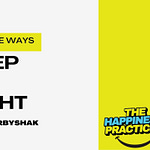In an enlightening conversation with speaker and author Justin Jones-Fosu, Phil Gerbyshak delved into the themes and insights from Justin’s latest book, I Respectfully Disagree: How to Have Difficult Conversations in a Divided World. The book serves as a timely manual for navigating the complexities of dialogue in our often polarized society. During the discussion, Justin shared several key points that underscore the importance of respectful disagreement and the pursuit of meaningfulness over mere happiness in our interactions.
Justin began by explaining his unique definition of happiness: "I define happiness as actually meaningfulness. There are certain things in our lives that may not bring a smile or a great sense of excitement but are worth it because we realize the power of what we're doing." This perspective sets the tone for his approach to engaging in difficult conversations, emphasizing that the value lies not in the immediate gratification but in the meaningful outcomes of our efforts.
When asked about the essence of respectful disagreement, Justin outlined the subtleties that distinguish it from disrespectful exchanges: "In our research, we initially set out to help people move from disrespectful disagreement — which often involves name-calling — to respectful disagreement, which values the humanity of people." He stressed the importance of still honoring humanity, even when ideologies clash, suggesting that "I can vitally disagree with your ideology and yet still passionately pursue your humanity."
One of the novel concepts Justin introduces in his book is the idea of "disrespectful agreement," which occurs when people superficially agree in the moment but privately dissent or fail to express their true feelings due to power differentials or societal expectations. This form of agreement can be just as damaging as disrespectful disagreement because it undermines genuine understanding and respect.
Justin also critiqued the notion of minimal respect, using a playful disagreement with Aretha Franklin's famous line from her song "Respect": "In our society, we don't need just a little bit of respect; we need a whole lot of it. It’s not about a little bit of respect right now; it’s about a whole lot of it."
Another poignant insight from Justin revolved around the concept that "How you see is what you get." He explained, "It’s not about what you see; it's how you see. How you engage with the person, how you think of the person, dramatically influences the interaction." He highlighted a 1968 study where teachers treated students they believed were more gifted differently, which significantly affected those students' performance, illustrating how perceptions can alter realities.
To cultivate the kind of self-awareness and perspective needed for respectful disagreement, Justin suggests challenging one's own views and continuously learning: "Put yourself in positions of learning constantly... Challenge your perspective as the first pillar of bridging divides."
Phil and Justin’s conversation not only highlighted the vital strategies for fostering respectful discourse but also showcased the deep need for a shift in how we approach disagreements in every sphere of our lives—from personal relationships to professional environments. As the book I Respectfully Disagree rolls out, it invites readers to embark on a journey of transformation, learning to engage in disagreements not just respectfully but meaningfully, ultimately cultivating a more understanding and cohesive society.












